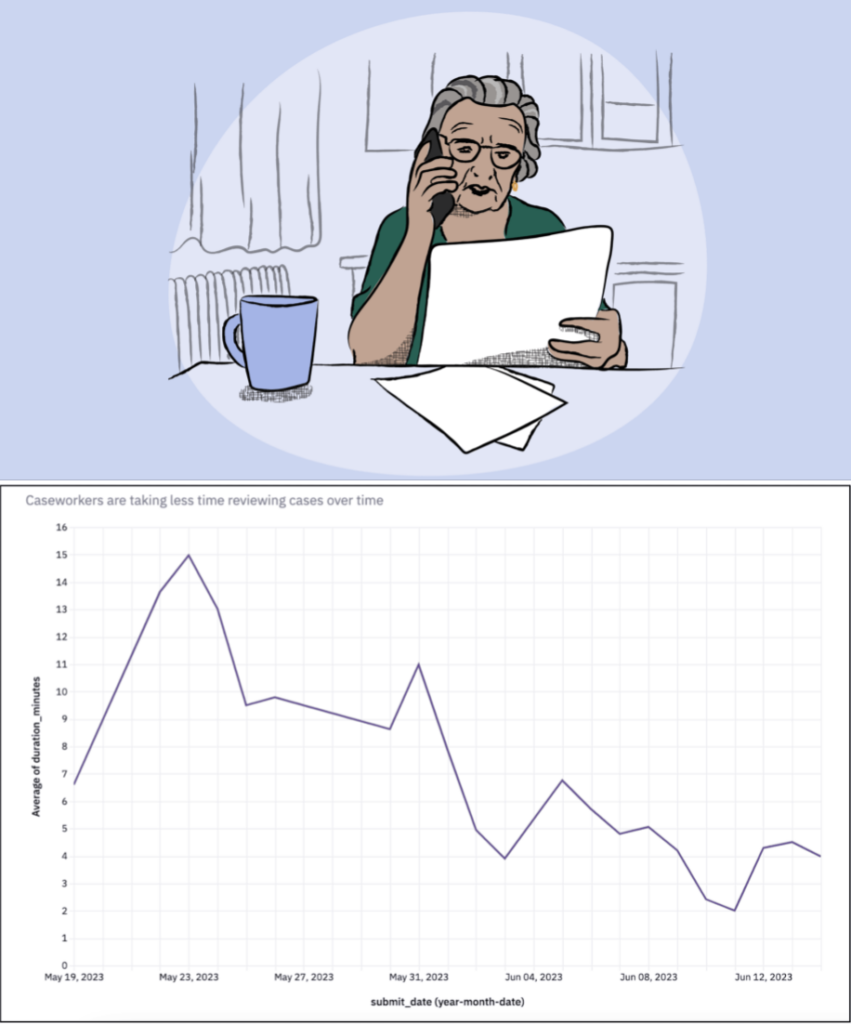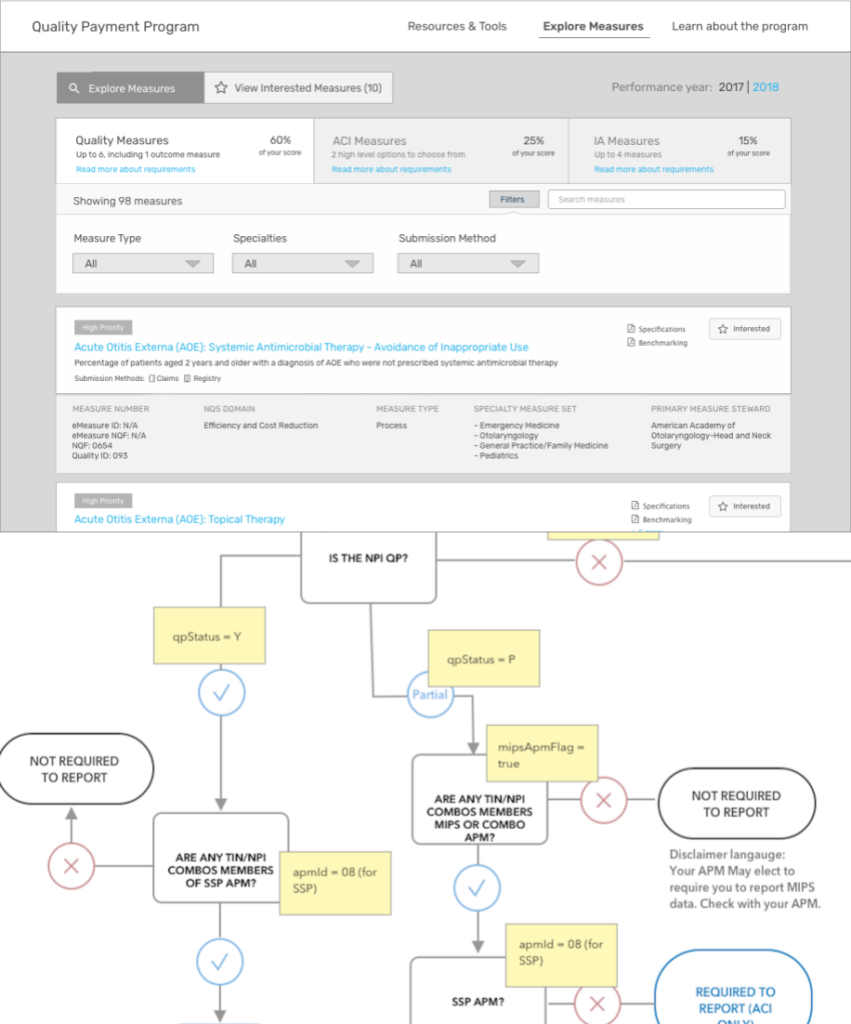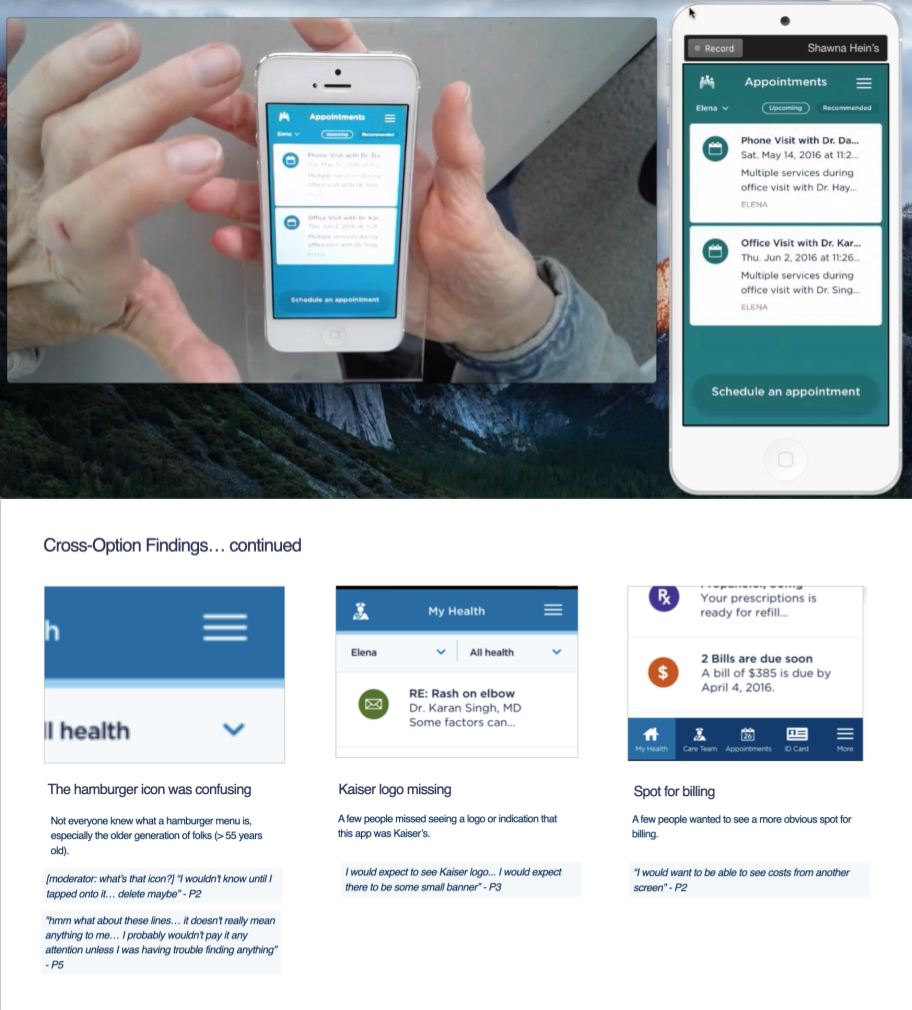I’ve spent much of my career designing for healthcare’s security, privacy, and regulatory needs. See below for a few examples.

Medicaid renewal in Minnesota
As VP of Experience at Code for America, I led the designers, researchers, and data scientists responsible for improving the Medicaid renewal process in Minnesota. For 10 months, my team worked with the state to build out and pilot an improved process for automatic renewals for the non-MAGI program (serving people who are age 65 or older, blind, or disabled). Improvements we made included finding areas for automation, and writing key policy and operational guidance for tricky cases.
Our work resulted in the delivery of $5.5 billion in benefits/year, and reduced time to process a renewal from 70 minutes to 11 minutes, on average.
You can read more about this project on Code for America’s website.

VA.gov health benefits applications
As Managing Principal Designer at Ad Hoc, I led a group of 18 designers and researchers working on VA.gov, the primary platform serving millions of Veterans with their health, education, and financial benefits. We worked on health applications both for individual Veterans, and caregivers of Veterans.
Key outcomes included simplifying the healthcare application by removing steps that caused undue hardship (e.g. the section on PTSD), and creating a new online form for Caregivers that integrated with VA’s back-end Salesforce instance.

The Quality Payment Program’s submission product
As tactical lead and Sr. Designer at Ad Hoc, I designed and implemented quality data-reporting tools for clinicians and practice managers, ensuring compliance and usability under CMS’s Quality Payment Program.
Additionally, I translated complex eligibility and performance rules into visual flows and digital tools used by both developers and policy stakeholders.

Kaiser Permanente’s flagship mobile application
As an independent designer and researcher, I was hired by Redshift Digital to run multiple rounds of research on Kaiser’s flagship mobile app. I helped them set up a mobile usability lab, and we brought in elderly and disabled users to test out the prototypes.
We found multiple issues relating to font size, an assumption that all users would understand the meaning of icons, and architecture confusion, and provided design recommendations for improvement.